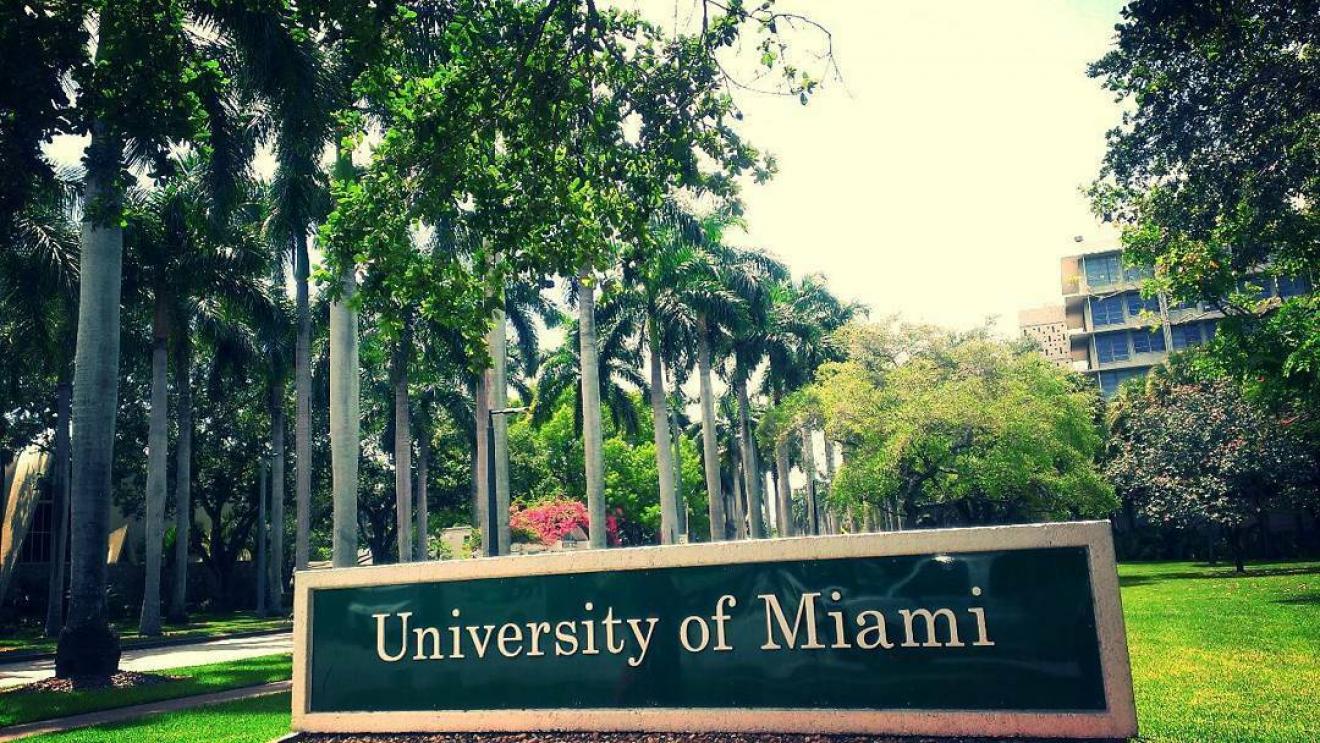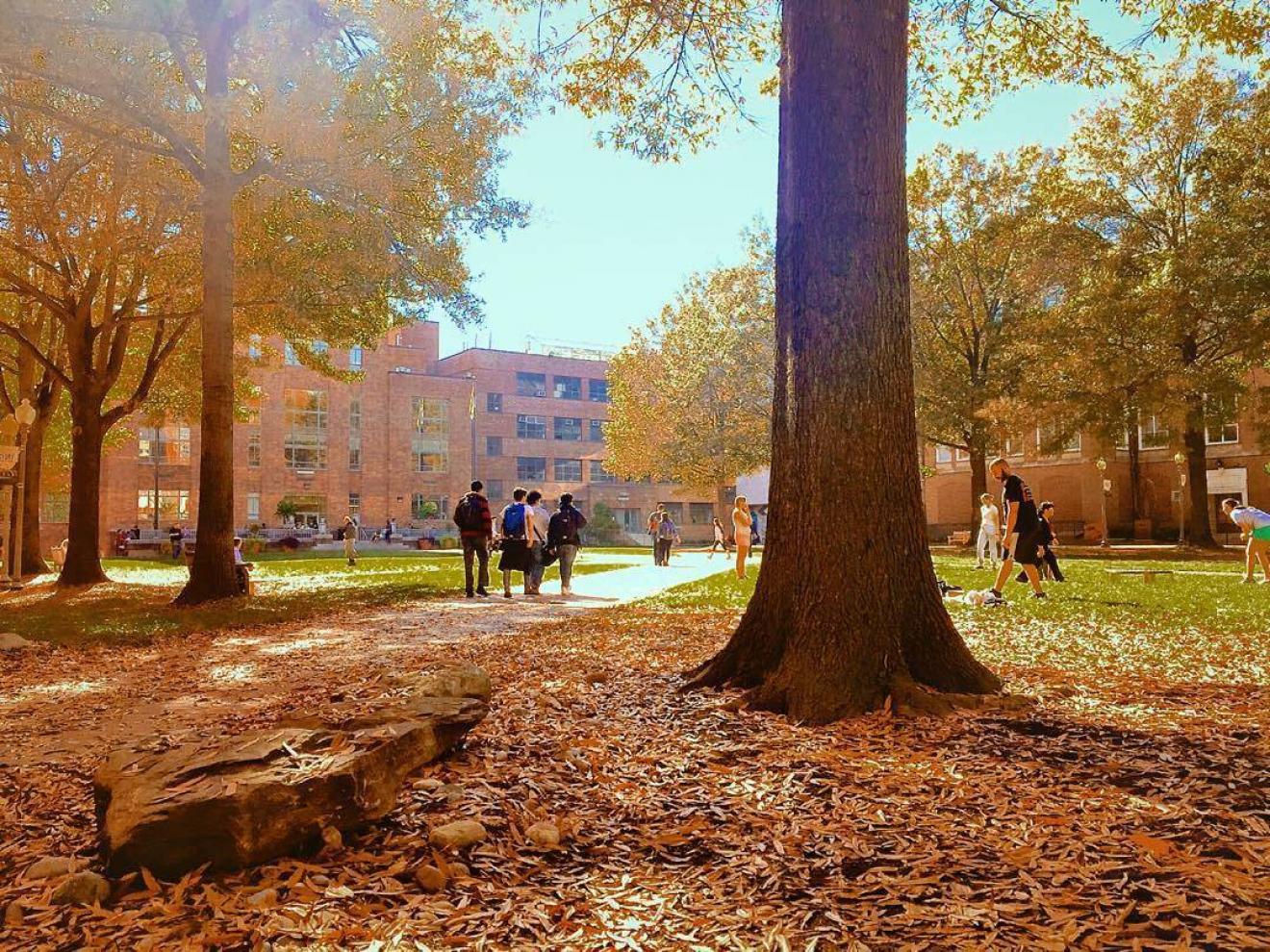Best Mental Health Counseling/Counselor colleges in the U.S. 2025
Mental health is one of the most important aspects of a healthy lifestyle, and understanding how to improve one’s mental health through counseling is a critical step towards a healthy and happy future. Mental health counselors play a big role in assessing their client’s needs, identifying areas of improvement, and facilitating a path towards personal betterment.
Mental health counselors work with individuals that have issues with addiction, stress, and self-esteem, along with interpersonal issues with marriages, parenting, and family dynamics. These professionals need strong communication skills, attention to detail, and most importantly, empathy to help them understand their clients’ problems.
To become a mental health counselor, students need to earn a four-year bachelor’s degree, along with a master’s or doctorate with state-specific licensing. This field typically requires in-person coursework due to the hands-on, interactive nature of the job. The Bureau of Labor Statistics projects that opportunities in this field will grow by 23 percent over the next decade, which is an encouraging outlook for those preparing to enter the field.
Pursuing a career in mental health counseling provides a range of opportunities to make a positive impact in the daily lives of those struggling with addiction, family dynamics, and other psychological stressors. Whether you want to work with children, seniors, or families, a degree in mental health allows you to enjoy a rewarding and wholesome career.
Click Here to See the Best Colleges in the USBest Mental Health Counseling/Counselor colleges in the U.S. for 2025
University of Rochester offers 3 Mental Health Counseling/Counselor degree programs. It's a large, private not-for-profit, four-year university in a midsize city. In 2022, 18 Mental Health Counseling/Counselor students graduated with students earning 18 Master's degrees.

University of Miami offers 1 Mental Health Counseling/Counselor degree programs. It's a large, private not-for-profit, four-year university in a small city. In 2022, 6 Mental Health Counseling/Counselor students graduated with students earning 6 Master's degrees.

Drexel University offers 1 Mental Health Counseling/Counselor degree programs. It's a very large, private not-for-profit, four-year university in a large city. In 2022, 16 Mental Health Counseling/Counselor students graduated with students earning 16 Bachelor's degrees.

George Washington University offers 1 Mental Health Counseling/Counselor degree programs. It's a very large, private not-for-profit, four-year university in a large city. In 2022, 35 Mental Health Counseling/Counselor students graduated with students earning 35 Master's degrees.
Mercer University offers 1 Mental Health Counseling/Counselor degree programs. It's a medium sized, private not-for-profit, four-year university in a midsize city. In 2022, 70 Mental Health Counseling/Counselor students graduated with students earning 70 Master's degrees.
Molloy College offers 1 Mental Health Counseling/Counselor degree programs. It's a small, private not-for-profit, four-year university in a large suburb. In 2022, 12 Mental Health Counseling/Counselor students graduated with students earning 12 Master's degrees.
Seton Hall University offers 1 Mental Health Counseling/Counselor degree programs. It's a medium sized, private not-for-profit, four-year university in a large suburb. In 2022, 25 Mental Health Counseling/Counselor students graduated with students earning 25 Master's degrees.
For over 145 years, Johns Hopkins has been a renowned leader in research and development, with a $6.75 billion endowment (as of 2020). Based in Baltimore, JHU features campuses in Washington D.C. as well as Italy and China. It’s a founding member of the esteemed American Association of Universities.
Pace University offers 2 Mental Health Counseling/Counselor degree programs. It's a large, private not-for-profit, four-year university in a large city. In 2022, 51 Mental Health Counseling/Counselor students graduated with students earning 48 Master's degrees, and 3 Doctoral degrees.
Marquette University offers 1 Mental Health Counseling/Counselor degree programs. It's a large, private not-for-profit, four-year university in a large city. In 2022, 36 Mental Health Counseling/Counselor students graduated with students earning 36 Master's degrees.
Find local colleges with Mental Health Counseling/Counselor majors in the U.S.
What is Mental Health Counseling/Counselor?
As a mental health professional, it is your job to observe, listen to, and communicate with clients to understand their issues and offer personalized strategies to improve their daily lives. Depending on the industry or client, mental health counselors may work one-on-one, with families, or with groups to address the issues that are impacting their psychological health.
Quality of life is affected by a range of factors that encompass both physical and mental health. While aspects of physical health are observed in real-time, mental health and wellness require ongoing observation and human interaction to assess. A degree in mental health counseling prepares you to assess mental health.
A mental health counseling degree teaches skills to promote wellness for individuals with ranging emotional and mental distress. Mental health counseling professionals provide long-term support to improve the mental health and productivity of employees. This investment in human capital has had a direct effect on the demand for educated professionals with secondary degrees in the field of mental health.
Master's Degree in Mental Health Counseling/Counselor
What Can I Do With A Master’s Degree In Mental Health Counseling?
Today there are many viable career options for professionals with a master’s degree in mental health counseling. In higher education, school counselors offer services to students and faculty that seek help with personal issues in school and at home. In the corporate world, many companies establish wellness programs so employees can access counseling to improve stress management, work-life balance, and general emotional health.
At home, many individuals seek couples and family therapy as a means to resolve personal problems and seek common ground. No matter the industry, mental health counselors provide an essential service that only increases in demand.
Getting a master’s degree in mental health counseling can be a daunting task given the financial and time commitment. A bachelor’s degree in education or psychology provided students with an excellent introduction to the field of mental health counseling, although some master’s programs require applicants to complete general psychology or sociology electives to qualify for the program.
Depending on what school or program is of interest, it’s always helpful to review the application requirements and/or prerequisites. Future applicants should consider admissions requirements, cost, and areas of specialization to be sure that the program they choose fits their criteria.
Pros And Cons Of Master’s Degree In Mental Health Counseling
Like many post-graduate degrees, there are positives and negatives associated with a graduate degree in mental health counseling. Time, cost, and post-graduation job placement are all key factors that should be assessed prior to applying.
Compared to a master’s degree in mental health counseling, a master’s of psychology typically requires students to pursue a specific field of treatment, such as PTSD or depression, with a focus on patient assessment and treatment. If you have a master’s degree in mental health counseling, you may need a doctorate to provide similar services as professionals with a master’s of psychology.
Each degree can also lead to very different salaries. According to the Bureau of Labor Statistics (BLS), master of psychology graduates typically earn double what master of mental health counseling graduates earn, so this can be an important factor for prospective applicants.
Coursework In Mental Health Counseling Master’s Programs
While course loads and content vary slightly by program, many of the courses offered in mental health counseling programs are aligned to meet industry standards. Classes such as Behavioral Evaluation, Human Growth and Development, and Family Therapy teach important counseling theories and can be expected as part of the core course-load, while specialized courses like Substance Abuse and Disability Counseling comprise just a couple of the typical elective options.
| Course | About the Course |
| Behavioral Education | This class looks at how social and environmental factors influence behavior and personality over time |
| Human Growth and Development | In this course, students analyze the cognitive, linguistic, and physical development of humans from birth. |
| Family Therapy | Family therapy helps students understand family dynamics and functionality to address issues like divorce through intervention and counseling |
| Foundations of Counseling | This course typically serves as an introductory course that master’s students take to understand the legal, ethical, and professional aspects of counseling |
Skills Learned In A Master Of Mental Health Counseling Program
With a master’s degree in mental health counseling, graduates are expected to develop counseling skills to better understand their patients’ needs. Programs build skills such as:
- Communication
- Observation
- Listening
- Critical-thinking
How Long Does It Take To Get A Master’s Degree In Mental Health Counseling?
Some graduate programs take one year to complete, while others take up to two years with compulsory post-graduation internships or clinical experience. Most programs require applicants to complete the GRE and submit scores as part of their application package, but it is always best to check each schools’ admission requirements to be sure.
Factors that impact the length of a degree program include:
- Previous education
- Online vs. in-person learning
- Accelerated course availability
- Synchronous vs asynchronous learning
- Part-time vs. full-time course loads
Choosing The Best Master’s Degree In Mental Health Counseling
There are many viable paths to earning a master of mental health counseling. It is important to note that there are both online and in-person degree options, as well as additional certifications and licenses depending on a student’s specialization or field of interest. This section explored the different options available for future mental health counseling students.
Mental Health Counseling Degree Specializations
When exploring specializations for mental health counseling, first get familiar with the options. Depending on the demographic that you’re interested in working with, you might select a common specialization such as:
- Early Childhood Development
- Marital/Familial
- Educational
- Clinical Rehabilitation
- Addiction
Mental Health Counseling Vs Psychology Master’s Degrees
There are distinct differences between psychology and mental health counseling degrees that have lasting financial, time, and employment implications. According to BLS, a graduate with a master of mental health counseling can expect post-graduation salaries starting at $47,660, while individuals with a master of psychology might expect a salary of $82,180, depending on location and field of expertise.
From a professional standpoint, it’s important to point out that to provide similar levels of service to psychology professionals, those with a master’s degree in mental health counseling typically need to earn a doctorate.
Earning an Online Mental Health Counseling/Counselor Degree
As with many other degree programs, prospective mental health counseling students have multiple options of study depending on their schedules and goals in the program.
Future applicants should note that while there are many online options to choose from, human interaction, observation, and lab-time are crucial skills needed for mental health counseling careers. While online learning can offer added flexibility and no commute, on-campus learning provides added social and networking opportunities that can benefit post-graduate job placement.
If students choose to study online, they can anticipate completing some courses and all required clinical experience in person.
How Long Does It Take To Complete An Online Course?
Depending on the format of an online course, student experience may vary. If courses are taught synchronously, then students must attend online lectures and labs at set times. If a course is taught asynchronously, students can watch lectures and study on their own time, ideal for busy schedules.
Hybrid courses offer a combination of online lectures and in-person lab time, which can be especially helpful for students looking to acquire the skills needed to work with clients post-graduation. Some certificate programs offer accelerated online courses that condense the subject matter into 3-6 week increments.
Mental Health Counseling/Counselor Career and Salary Overview
Master of Mental Health Counseling Salaries and Career Outlook
Graduates with a master’s degree in mental health counseling often pursue careers as:
- Rehabilitation Counselors
- Psychologists
- School and Career Counselors
- Substance Abuse, Behavioral Disorder, Mental Health Counselors
Job growth projections in this field may vary depending on the position, and graduates should note that these statistics are reflections of the current job market that can fluctuate over time.
Mental Health Counseling Master’s Degree Career Paths
| Career | Salary | Projected Job Growth (2020-2030) | About the Position |
| Rehabilitation Counselors | $37,530 | 10% | Rehabilitation counselors help individuals overcome emotional, developmental, and physical obstacles to promote growth and independence. |
| Psychologists | $82,180 | 8% | Psychologists observe clients and conduct research on social, behavioral, and cognitive functions |
| School and Career Counselors | $58,120 | 11% | A school and career counselor works with students and professionals to navigate their career paths and secure employment. |
| Substance Abuse, Behavioral Disorder, and Mental Health Counselors | $47,660 | 23% | These professionals work with individuals to promote mental and social wellbeing to foster healthier lifestyles and avoid relapse. |
Mental Health Counseling Career Resources
1. American Counseling Association (ACA) - ACA is an organization for mental health counseling students and professionals that funds need-based and merit-based scholarships, networking opportunities and awards. ACA provides continuing education, career, and publications that celebrate their members achievements and offer information for future counselors.
2. American Mental Health Counselors Association - This group provides networking and continuing education opportunities for future students and current counselors in the United States. In addition to networking galas and conferences, they also conduct policy research and offer credentialing services.
3. American College Counseling Association - This organization is composed of psychologists, counselors, and social workers that work in higher education. Members include professionals in the college counseling field that hold master’s and doctoral degrees. Members have access to a variety of job boards, networking events, and grants for those interested in pursuing academic research in the field.
Mental Health Counseling/Counselor FAQ
List of all Mental Health Counseling/Counselor colleges in the U.S.
| School | Average Tuition | Student Teacher Ratio | Enrolled Students | |
|---|---|---|---|---|

|
University of Rochester Rochester, NY | 15 : 1 | 12,197 | |

|
University of Miami Coral Gables, FL | 17 : 1 | 19,402 | |

|
Drexel University Philadelphia, PA | 21 : 1 | 22,344 | |

|
George Washington University Washington, DC | 22 : 1 | 25,939 | |

|
Mercer University Macon, GA | 22 : 1 | 8,889 | |
Article Sources
- Payscale.com
- BLS
- https://www.bls.gov/oes/2016/may/oes211014.htm
- https://www.bls.gov/ooh/community-and-social-service/substance-abuse-behavioral-disorder-and-mental-health-counselors.htm
- https://www.bls.gov/ooh/community-and-social-service/marriage-and-family-therapists.htm
- https://www.bls.gov/ooh/community-and-social-service/rehabilitation-counselors.htm
- https://www.bls.gov/ooh/community-and-social-service/school-and-career-counselors.htm
- https://www.northwestu.edu/college-social-behavioral-sciences/master-arts-clinical-mental-health-counseling
- https://www.amhca.org/home









